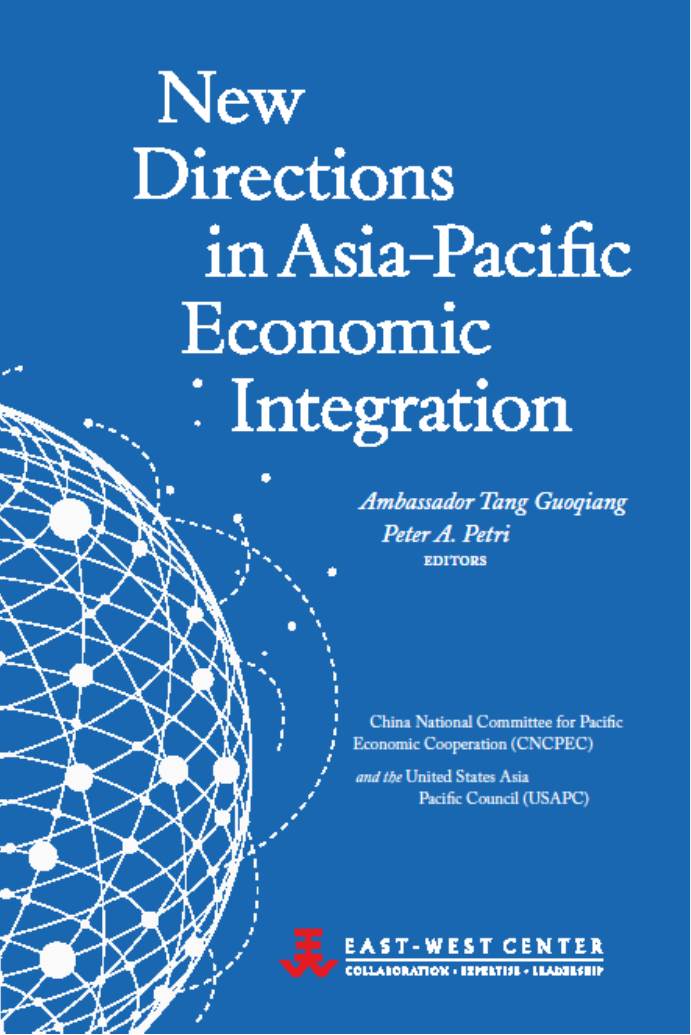 New Directions in Asia-Pacific Economic Integration
New Directions in Asia-Pacific Economic Integration
Edited by Tang Guoqiang and Peter A. Petri
Sponsored by the China National Committee for Pacific Economic Cooperation (CNCPEC)
and the United States Asia Pacific Council
Published by the East-West Center (click here to access the free PDF or to order a print copy of the book)
In 2014 the Asia-Pacific Economic Cooperation (APEC) forum celebrates its 25th anniversary in a vastly changed region and world. In Bogor, Indonesia, twenty years earlier, APEC committed to achieve free trade and investment in the region by 2020. In Beijing in 2014, China will again make regional economic integration an APEC priority. These papers draw on two conferences organized by the China National Committee for Pacific Economic Cooperation and are published jointly with the US Asia Pacific Council.
As one contributor put it, APEC earns an “A” for its vision of regional economic integration, but its grade on execution remains “incomplete.” Yet pathways to the Bogor Goals are coming into focus. This book examines the Trans-Pacific Partnership and Regional Comprehensive Economic Partnership negotiations from various perspectives, and considers possibilities for their consolidation into a Free Trade Area of the Asia Pacific (FTAAP). It also explores regional connectivity and the proposed Asian Infrastructure Investment Bank.
Experts from nearly every APEC economy explore the benefits and challenges of regional economic integration. Their perspectives differ, but also reveal striking common ground. They offer practical recommendations for the Asian and Trans-Pacific pathways, for ensuring their compatibility, and for promoting their convergence into FTAAP.
This book will be an invaluable reference for readers interested in the prospects for Asia-Pacific economic integration. It testifies to a little-celebrated, but invaluable achievement of APEC: the rise of a sophisticated, international community of experts who understand the region and collaboratively promote its long-term interests.
Tang Guoqiang is Chair of the China National Committee for Pacific Economic Cooperation. Previously, he served in the Ministry of Foreign Affairs of the People’s Republic of China for 38 years.
Peter A. Petri is the Carl J. Shapiro Professor of International Finance at the Brandeis International Business School, a senior fellow at the East-West Center in Honolulu, and a visiting fellow at the Peterson Institute for International Economics in Washington, DC.
